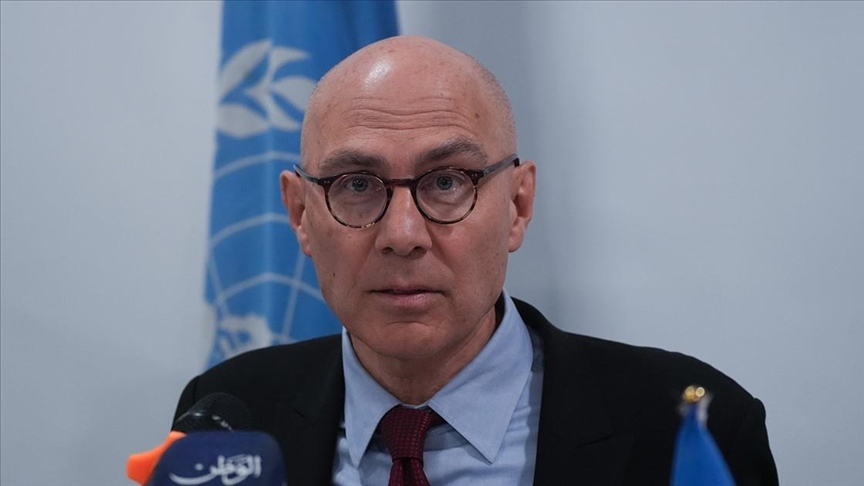UN human rights chief urges immediate cessation of killings in northwest Syria
There must be prompt, transparent and impartial investigations into all killings and violations, says Volker Turk

GENEVA
The UN human rights chief Volker Turk has urged immediate cessation of civilian killings in coastal areas in northwest Syria.
"Following a series of coordinated attacks reportedly launched by elements of the former government and other local armed men, we are receiving extremely disturbing reports of entire families, including women, children and hors de combat fighters, being killed," Turk said in a statement.
He said that new authorities' announcements of their intention to respect the law "must be followed by swift actions to protect Syrians, including by taking all necessary measures to prevent any violations and abuses and achieve accountability when these occur."
There must be "prompt, transparent and impartial investigations into all the killings and other violations, and those responsible must be held to account, in line with international law norms and standards," he urged. "Groups terrorizing civilians must also be held accountable."
These events, as well as the continuous spike in hate speech both online and offline, illustrate once again the urgent need for a comprehensive transitional justice process that is "nationally-owned, inclusive, and centered on truth, justice and accountability," he said.
Last week, Syria's coastal governorates of Latakia and Tartus witnessed coordinated attacks by Assad loyalists. These were the most intense assaults since the regime’s collapse, targeting security patrols and checkpoints, resulting in casualties.
After the collapse of the Assad regime in December, the new Syrian authorities launched an initiative to settle the status of former regime members in the military and security forces, contingent on their surrendering weapons and remaining untainted by bloodshed.
While tens of thousands accepted the initiative, some armed groups made up of regime remnants, particularly in the coastal region where high-ranking Assad officers were stationed, rejected it.
Over time, these groups fled to the mountainous areas, stirring tensions, destabilizing the region, and launching sporadic attacks against government forces in recent weeks.
Assad, Syria’s leader for nearly 25 years, fled to Russia on Dec. 8, 2024, ending the Baath Party regime, which had been in power since 1963.
Ahmed al-Sharaa, who led anti-regime forces to oust Assad, was declared president for a transitional period on Jan. 29.
Anadolu Agency website contains only a portion of the news stories offered to subscribers in the AA News Broadcasting System (HAS), and in summarized form. Please contact us for subscription options.







